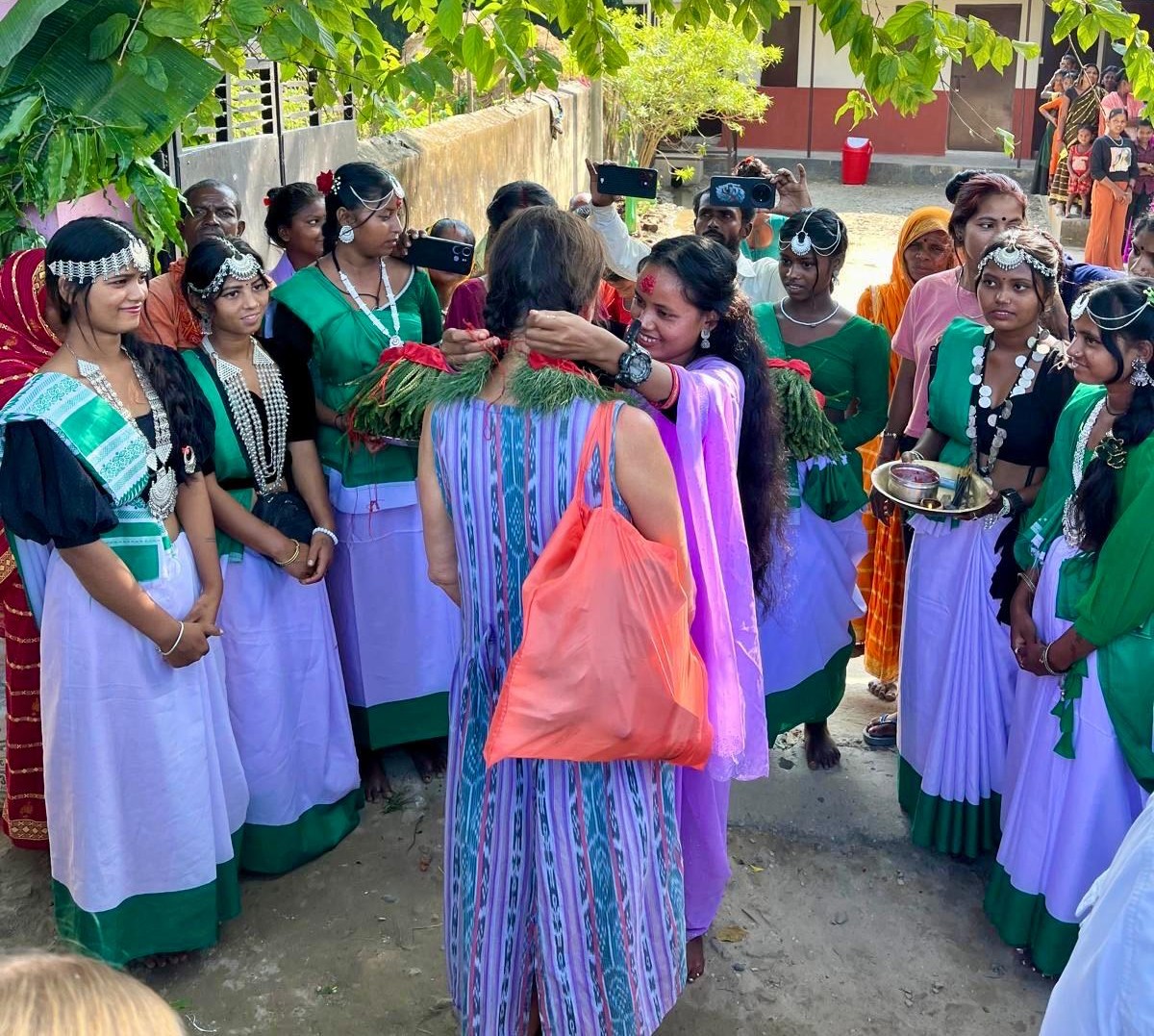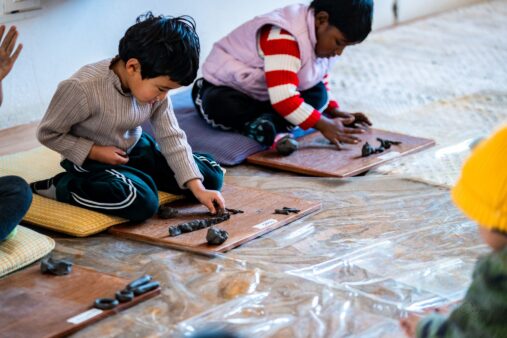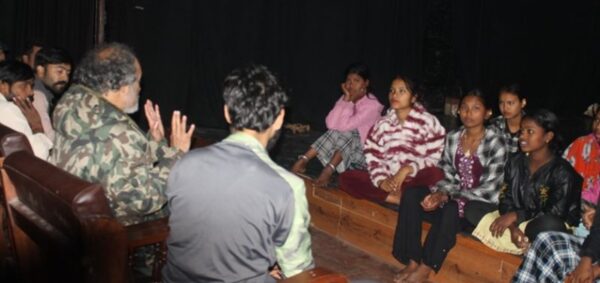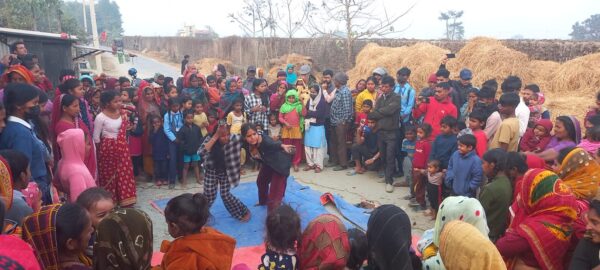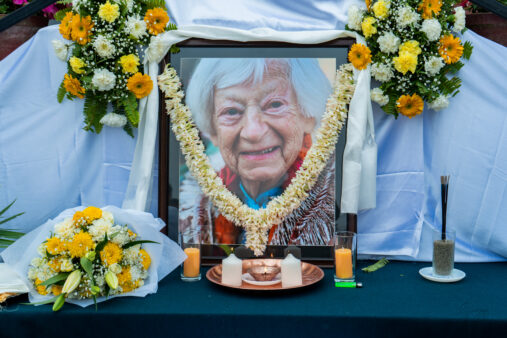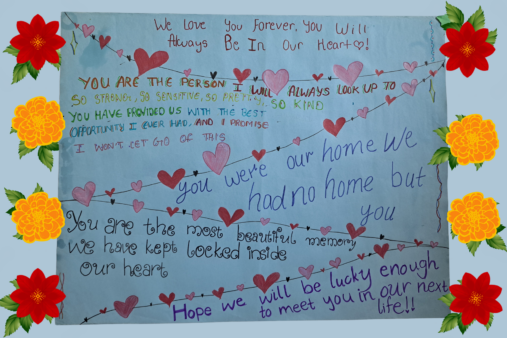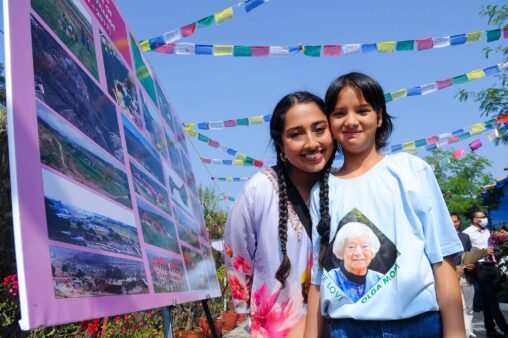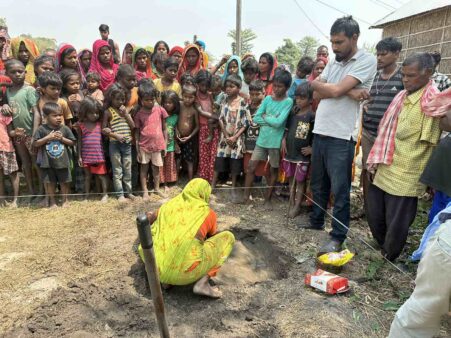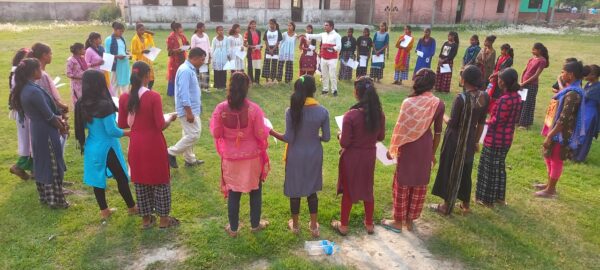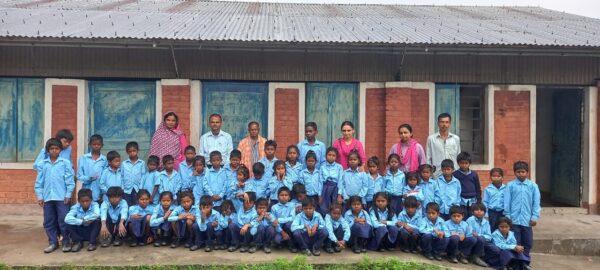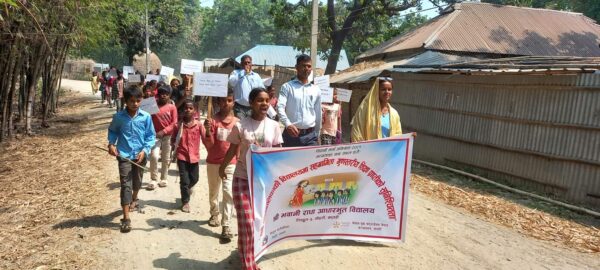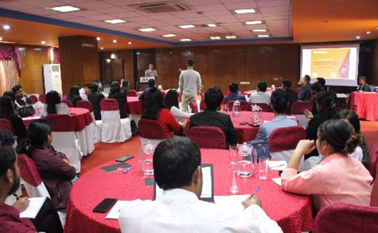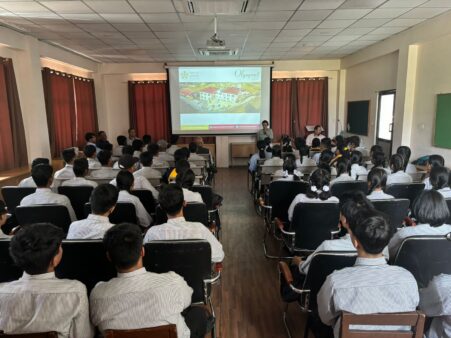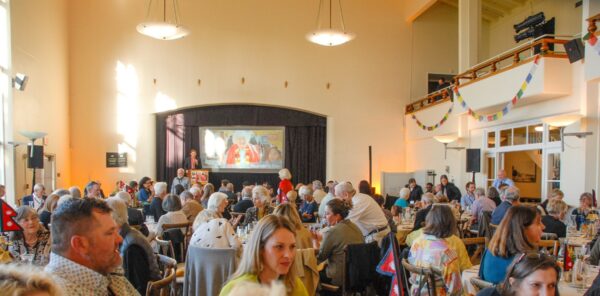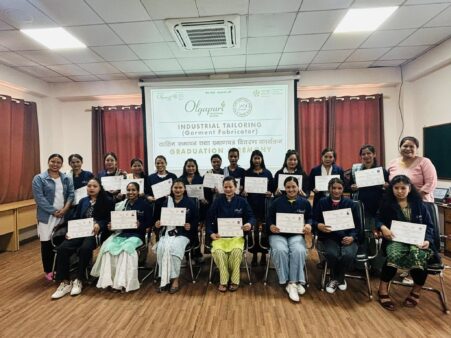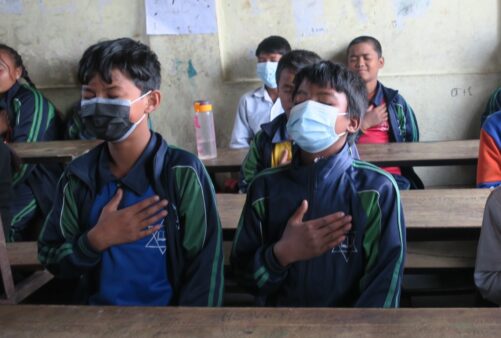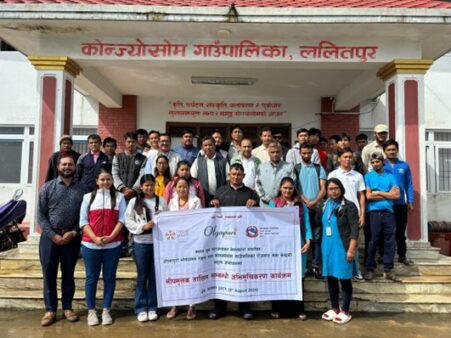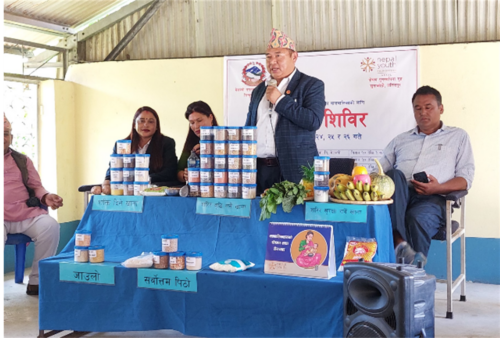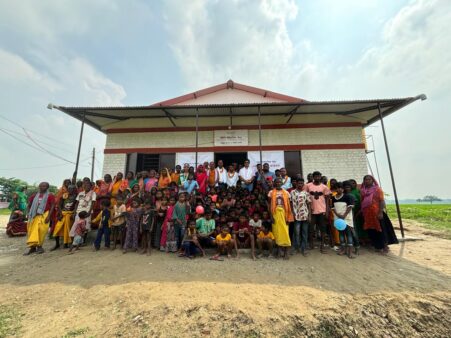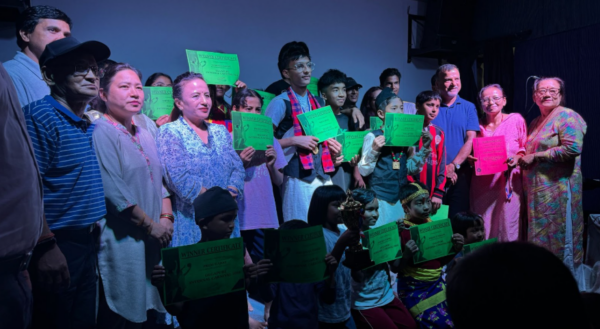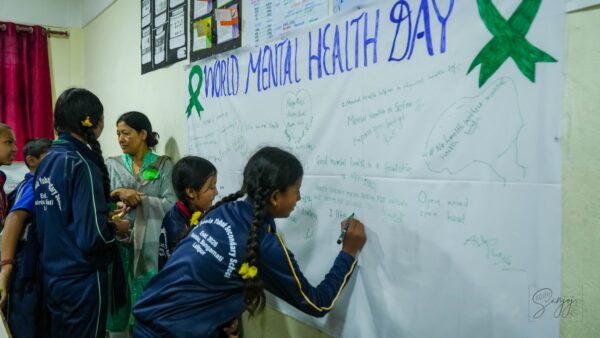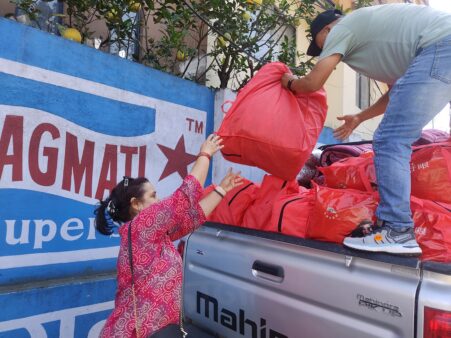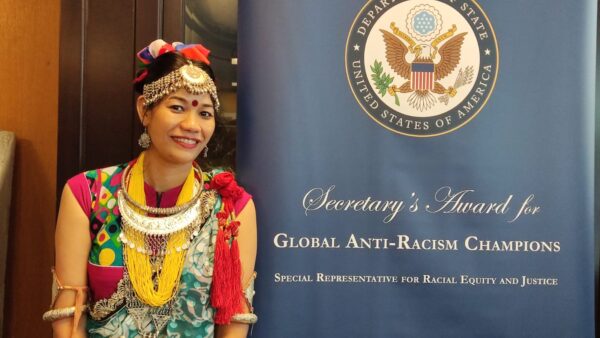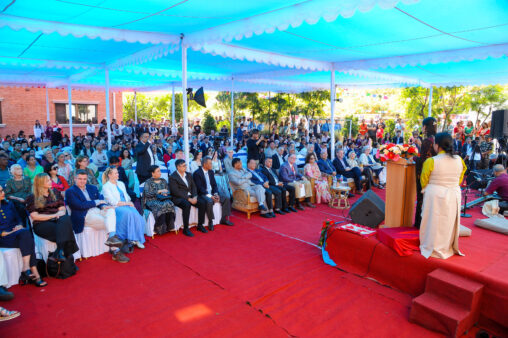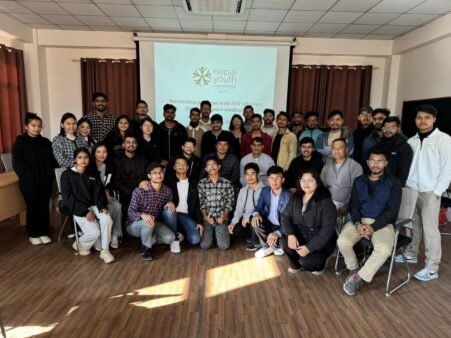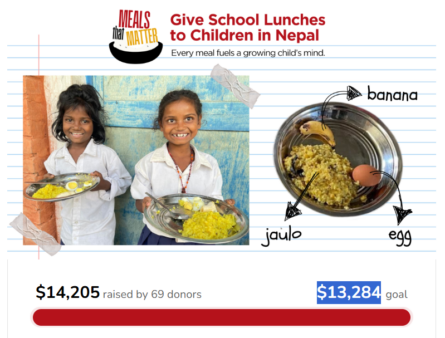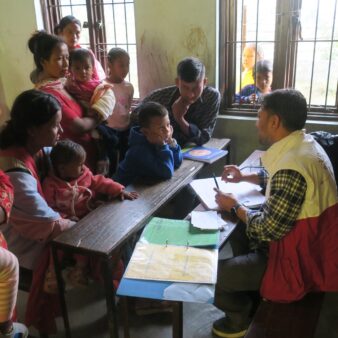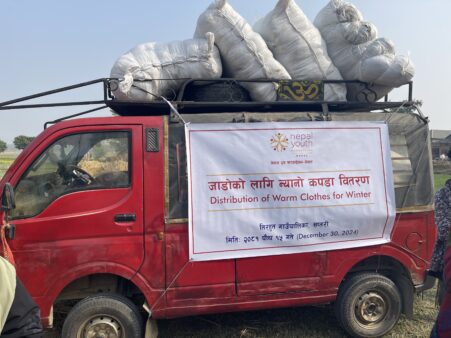Month: December 2024
2024 Year-in-Review
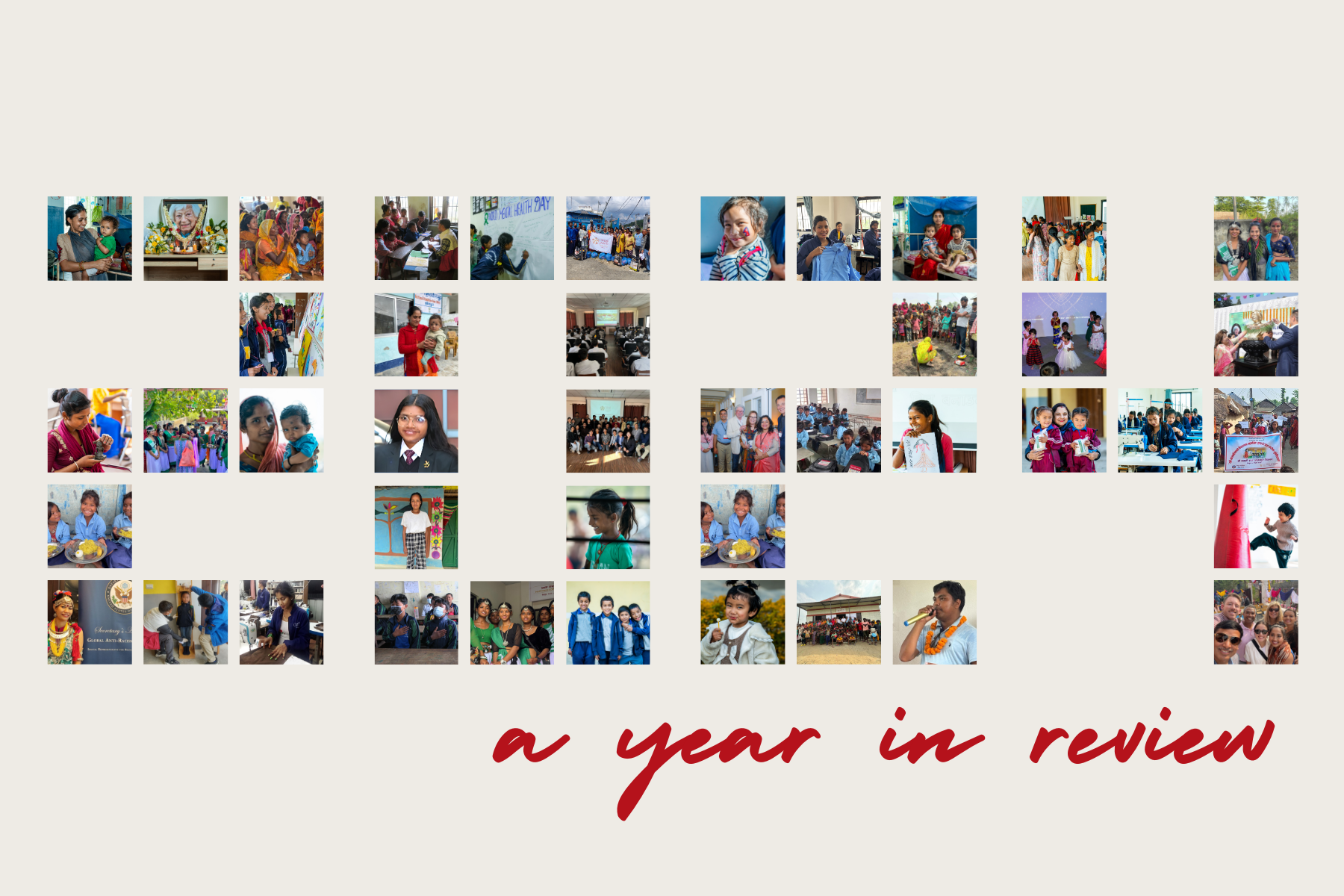
2024 was a significant and bittersweet year for NYF. In February, we said goodbye to our beloved founder, Olga Murray. Olga’s vision continues to be NYF’s compass as we carry out her legacy of empowering Nepal’s children and families with Education, Health, Shelter, and Freedom.
Amid our loss, we will also remember the year for many hopeful and exciting reasons, too. We achieved so much together. To honor all the significant moments of this remarkable year, we’ve created a special timeline of the year that notes many of our accomplishments and events. Please note that many of our more transformative programs—NYF’s flagship Nutritional Rehabilitation Home, our Vocational Training courses, New Life Center’s Medical Recovery Home, Ankur Counseling Center, Olgapuri Children’s Village, and our various scholarship programs—are ongoing and did not get included in the timeline below.
Thank you to all those in the NYF Community for standing with us through such a pivotal year. Your support for our work is appreciated even more than you know.
7,710
children received* nutrition screening through NYF
955
students received* scholarships from our education programs
935
youths trained* in NYF’s various vocational training courses
86%
of trainees found employment within 3 months of graduating
2
Community Learning Centers inaugurated in Saptari District
86
children* called Olgapuri Children’s Village their home
1,549
counseling sessions* completed by Ankur Counseling Center
20,300
individuals reached* through NYF’s transformative programs
*based on reporting from NYF’s last fiscal year between June 2023 and July 2024
As we look ahead to 2025, support from our NYF Community is more critical than ever. If you haven’t already, we hope you’ll consider making a gift today:
Thank you again for all your help making 2024 such a significant year for NYF. We hope you’ll consider helping us make an even greater impact in 2025!
Holiday Wishes from Nepal
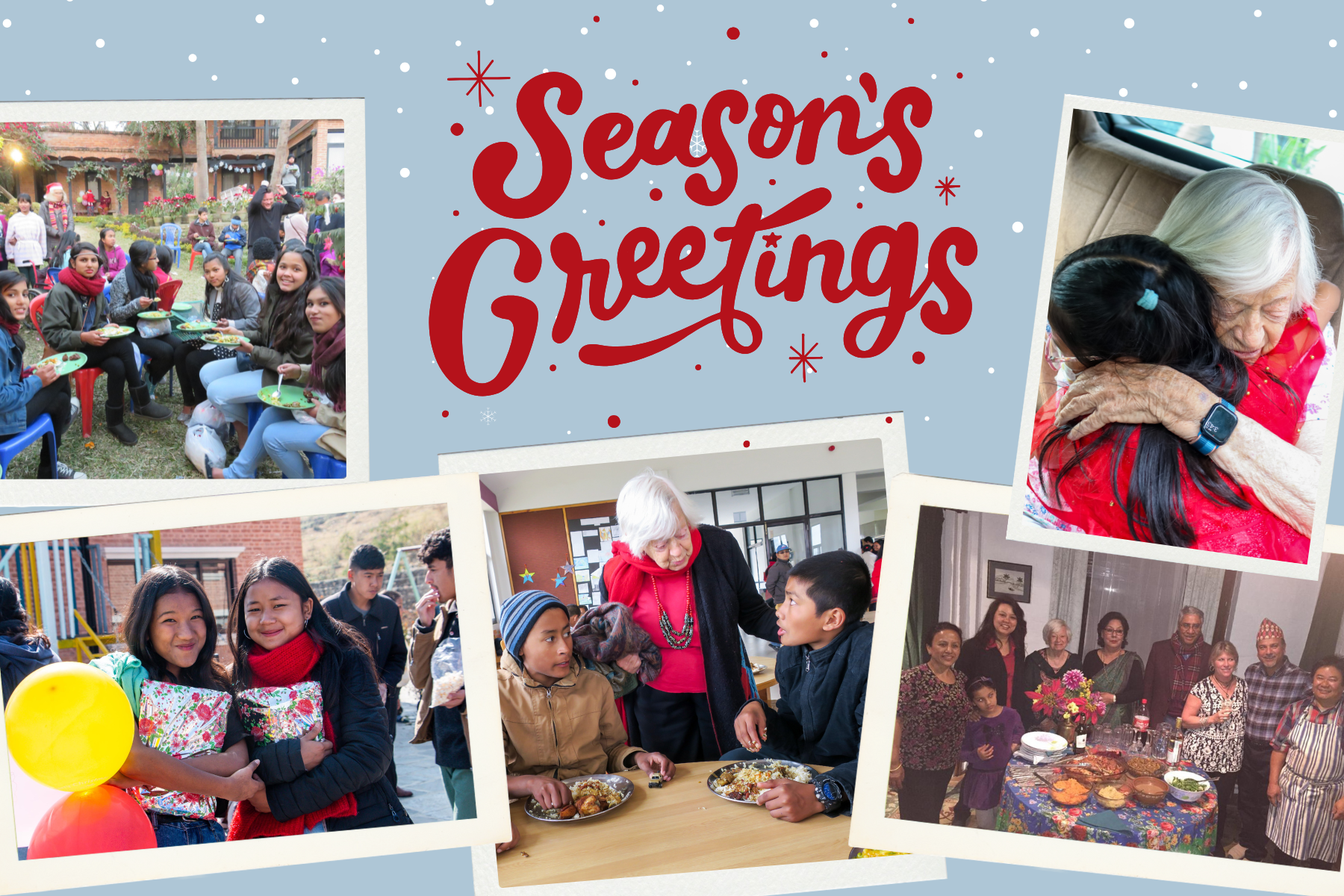
NYF President Som Paneru sends his holiday wishes to you! This letter was featured in an email sent to NYF supporters on December 23, 2024. If you’d like to receive messages like this in the mail, please subscribe to our email list here.
Dear NYF Community,
After your love and generosity during Nepal’s festival season at Dashain and Tihar, it is now our turn to send warm holiday wishes to all of you.
When we ask our graduates about their experiences with NYF, most of them mention holiday celebrations. Of course, they are tremendously grateful for the opportunity to receive a good education, for excellent healthcare, for nutritious meals, and for a safe, stable home. But happy festival memories bound them together as a family.
Our late founder, Olga Murray, always understood intuitively that alongside our wonderful programming, the children in our care needed these joyful traditions. These special times bring us together, creating a shared sense of belonging.
This is our first holiday season since Olga’s passing. It is a bittersweet occasion. The holidays are not the same without her mischief and laughter.
But even this is part of what makes these occasions important. Cherished festival traditions provide opportunities to remember those who came before us, to remember everything they made possible.
This holiday season, I am tremendously grateful for all the years we spent with Olga—and for all the ways she showed her love for Nepal’s children. I am grateful that her work introduced us to all of you, our generous supporters. And I am so moved by the way you have embraced Olga’s promise to the children of Nepal, and made it into Our Shared Promise.
Thank you all for sharing this remarkable year with us, and for your loving commitment to our shared promise. We wish you and yours a warm and joyful holiday season, and love and prosperity in 2025.
Som Paneru, President
Nepal Youth Foundation
Educating Dalit Lawyers Program Fall 2024 Update
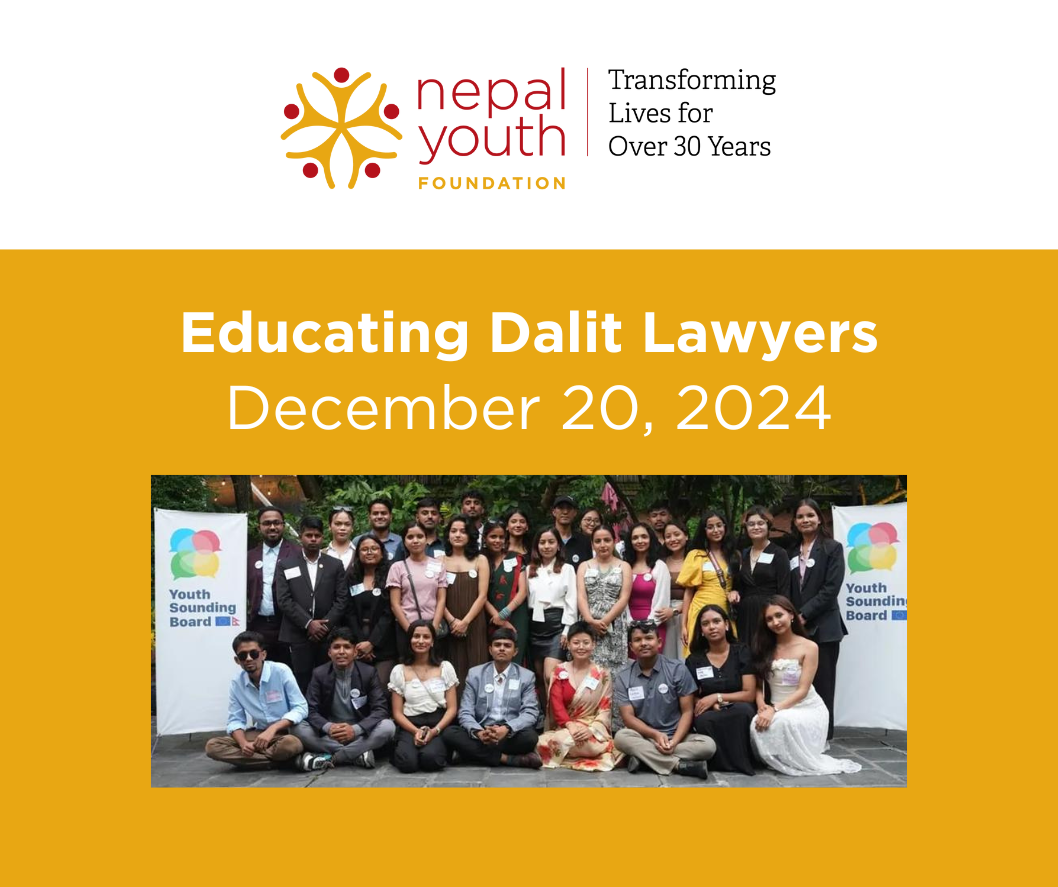
The Nepal Youth Foundation is thrilled to share the latest developments in our Educating Dalit Lawyers (EDL) scholarship program. This transformative initiative is supporting 31 aspiring lawyers from Nepal’s Dalit community as they pursue legal education and work to break barriers of caste-based discrimination.
Since our last update in Spring 2024, the EDL program has continued to grow. Students are excelling both academically and in extracurricular activities. Many are now focusing on specialized areas such as child rights, women’s rights, and policy development. These are fields that urgently need Dalit representation.
Read on to learn more about the incredible strides being made by these determined future leaders!
*Please note that our team has received permission from each of these students to use their real names in updates moving forward.
Program Highlights
This fall, the EDL program reached significant milestones. This included the Mentorship Initiative, where students get paired with mentors working in legal professions. All second-cohort students were paired with their respective mentors, who will offer practical advice, constructive feedback, and emotional support to guide the students in their legal journeys.
Student Achievements:
- Sarita Mijar participated in a Moot Court Training Session, focusing on International Criminal and Commercial Law, where she honed her skills in research, advocacy, and parliamentary procedures.
- Amrita Darji, a 5th-semester student, attended a Law, Politics, and Justice conference, exploring the interplay between legal frameworks and social justice.
- Pradip Nepali engaged in a Mock Parliament Simulation, developing his legal research and argumentation skills through immersive practice.
Leadership and Advocacy:
On July 27th, 2024, Dalit law students in the Kathmandu Valley formally established the Dalit Law Students’ Society, a groundbreaking initiative providing support and resources to Dalit students pursuing legal education. Nine of the 14 founding members are NYF’s very own EDL scholarship recipients, highlighting the profound impact of the program. EDL superstar Shishir Bishwakarma was elected as president, Rudra Bahadur Sarki as secretary, and Tara Bishwakarma as joint secretary!
This society, supported by Dignity Initiative, aims to:
- Coordinate caste-related fieldwork and human rights programs.
- Facilitate leadership training and networking opportunities.
- Build a fraternity-style network to assist final-semester students with internships and career placements.
As a result, by organizing this society, our EDL students are paying forward the generosity they’ve received, creating pathways for future Dalit law students to succeed and advocate against caste-based oppression.
Additionally, EDL students eagerly participated in the global event, “Breaking the Caste Bars: Sustainable Development Goals Framework for Justice and Inclusion of Dalits.” This high-level virtual discussion featured speakers from Nepal’s government and a global network of civil society organizations addressing caste-related issues.
In short, the program explored the United Nations Sustainable Development Goals (SDGs) from a Dalit perspective, highlighting how caste influences a wide range of international challenges. It also provided opportunities for students to build global connections.
Spotlighting Excellence:
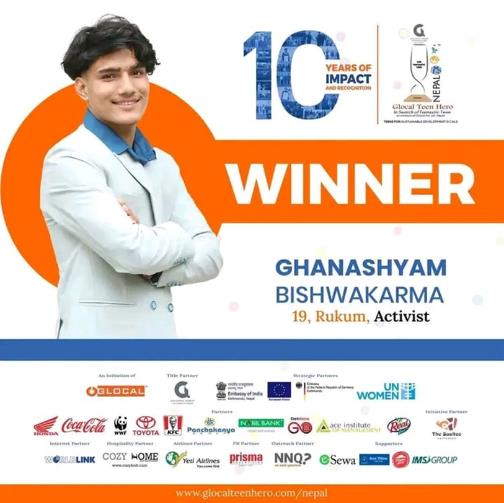
Ghanashyam Bishwakarma, 19, received the prestigious Glocal Teen Hero award for his advocacy efforts. During the COVID-19 pandemic, Ghanashyam used radio broadcasts to share safety information with remote communities. Since his tween years, he has shown remarkable leadership, in issues including child protection, climate justice, and ending child marriage.
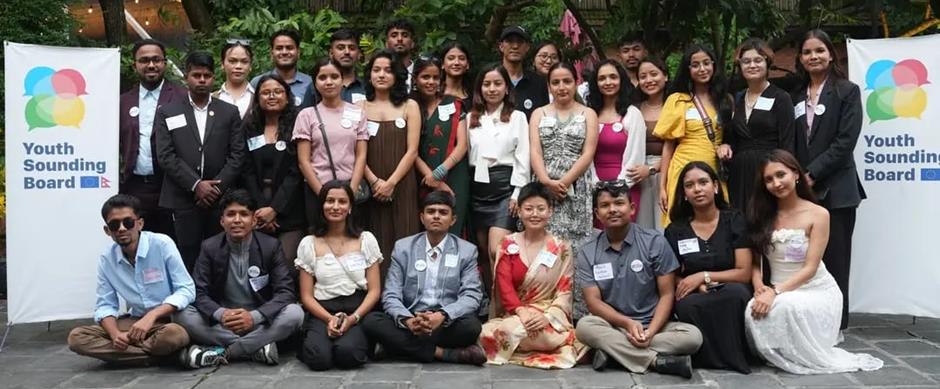
Shishir Bishwakarma, a third-semester EDL scholar and president of the Dalit Law Students’ Society, was elected to Nepal’s Youth Sounding Board, an EU initiative amplifying youth voices in global policy. From August 2024 to September 2025, he’ll work with 30 young leaders to advise the EU office in Nepal on youth-focused programming.
Looking Ahead
Your support is enabling Dalit students to thrive in Nepal’s competitive law programs and to advocate for justice and equality. As they advance in their studies, these students are emerging as advocates for child rights, women’s rights, and policy development. Their work is driving efforts to dismantle caste-based oppression at systemic levels.
Dhanyabad!
Thank you for standing with us and these courageous students as we create pathways to justice and empowerment. We look forward to sharing more updates in Spring 2025!
Urmila Chaudhary & Rising Leaders in Saptari District
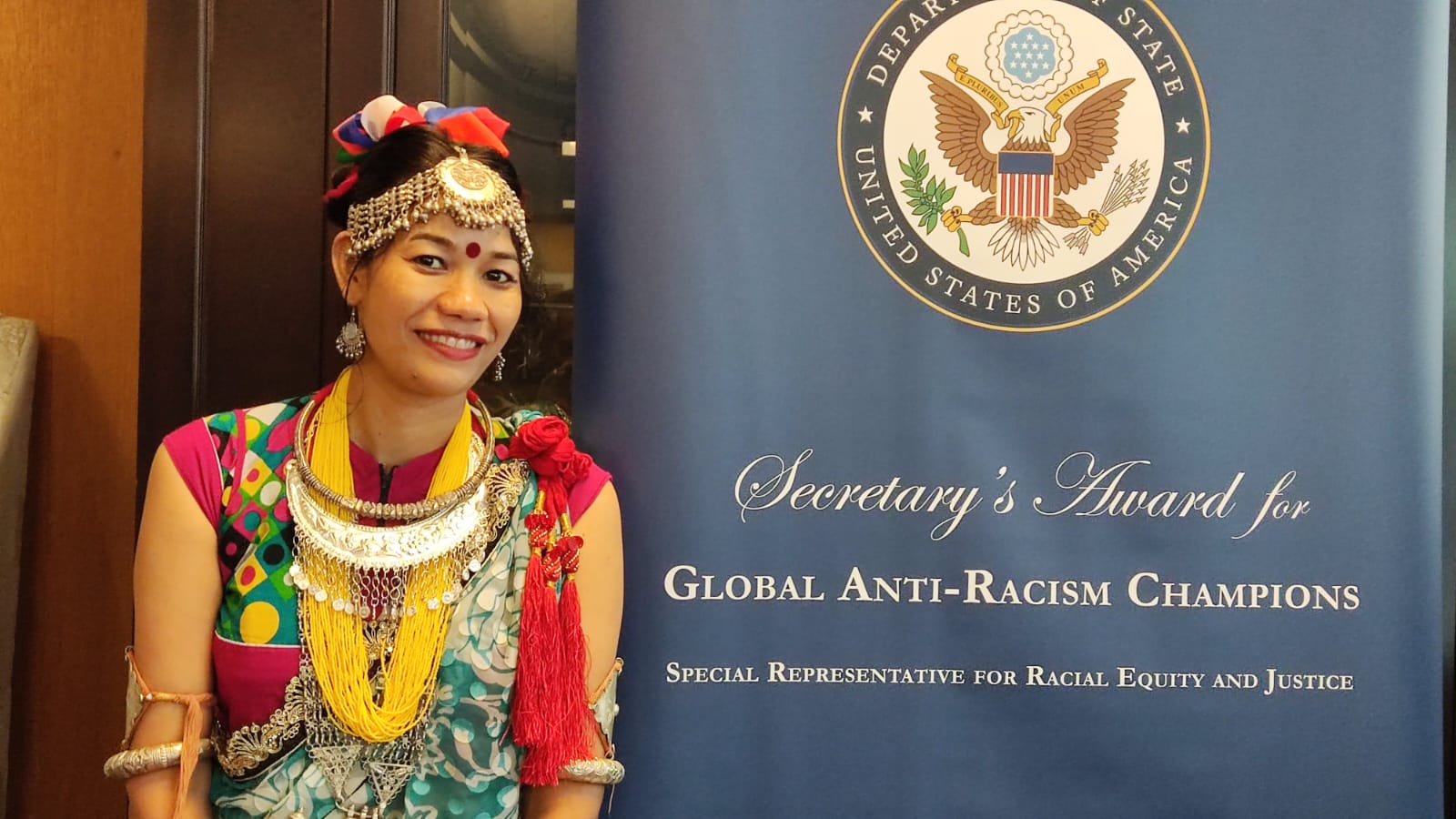
Urmila Chaudhary receives the Global Anti-Racism Champions Award
On October 21, 2024, NYF’s own Urmila Chaudhary was in Washington, D.C., one of six civil society leaders receiving the Global Anti-Racism Champions Award from the U.S. Secretary of State.
This prestigious award honors Urmila’s dedication to advancing the rights of marginalized castes and ethnic communities across Nepal and for combatting systemic racism and intersectional abuses. It brings us such joy to see Urmila’s remarkable accomplishments recognized on the world stage in this way.
NYF President Som Paneru first met Urmila in 2007 when she was 17 years old. She had been trapped in kamlari bonded servitude since age 6. She learned about NYF’s work from a brochure about street dramas being performed by girls like herself who had been liberated. Soon, she began seeking us out in a daring bid for her own freedom.
When Urmila returned to her village in Dang District, she joined an ongoing rally against the bonding practice before stopping to reunite with her family. She immediately became a relentless force and leader within her community, determined to ensure the freedom of the many others who were still enslaved.
- Urmila performed in street plays to raise awareness.
- She stormed outgoing buses at checkpoints to ensure no girls were being sold.
- She visited the families of young girls, convincing them not to send their daughters away.
- A natural leader, Urmila was one of the founders of the Freed Kamlari Development Forum.
- In 2013, Urmila was even hospitalized after being beaten unconscious by police during a peaceful demonstration. Footage of the brutality experienced by Urmila and other demonstrators was broadcast on national TV. It permanently turned Nepal’s people against the kamlari practice. By the end of the year, Nepal’s Supreme Court had formally outlawed the practice.
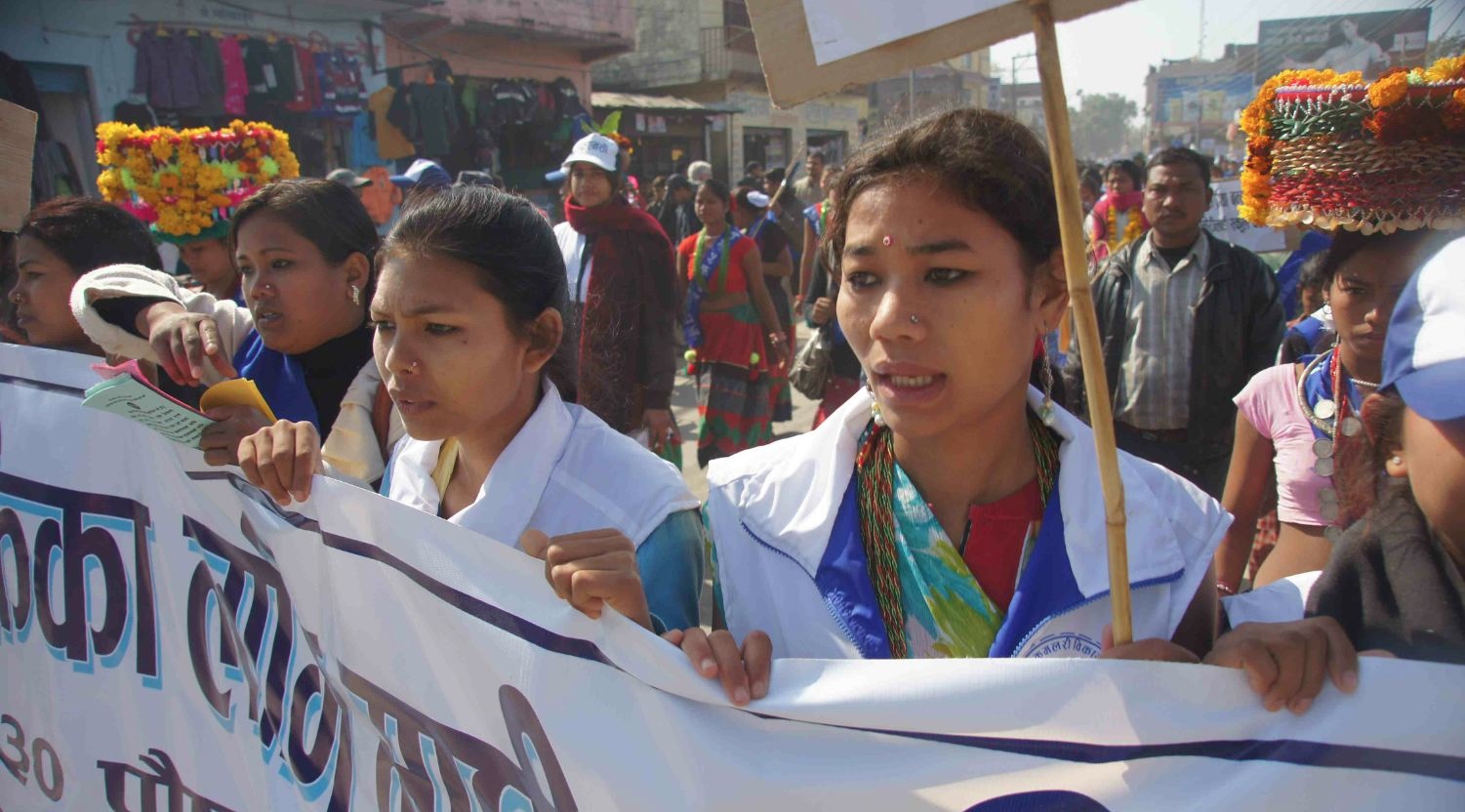
Perhaps most remarkable of all is this: Urmila accomplished all of this while still attending school. Urmila had never set foot in a classroom before being sold into bondage. Following an academic bridging course, Urmila enrolled in Grade 5 alongside 10- and 11-year-olds, taking on school at the same time that she was becoming one of the fiercest, most active leaders in the Kamlari Freedom movement. Today, she is in the final semester of her Bachelors of Legislative Law program at one of Nepal’s best law schools.
Urmila will use that law degree to continue her lifelong fight against injustice.
As we reflect on Urmila’s story, we see the same spark and passion in the young people we are serving in Saptari District. In these earliest days of the Caste Equality Project, several young women have already distinguished themselves as superstars—born leaders capable of achieving tremendous change for their communities. Please scroll down to learn more about two of these leaders, Renu and Anju.
Our Caste Equality Project is helping them unlock their remarkable potential.
For nonprofit organizations like ours, the “Giving Season” between now and the end of the year determines how much we can accomplish in the new year. Thanks to the success of the Empowering Freed Kamlaris program, we already have a proven roadmap for extraordinary, community-led change.
But only your help can keep the wheels in motion. The loving gifts you send right now determine how many young people NYF can support next year.
We’re hoping to raise an additional $250,000 by December 31st to ensure that we can reach as many kids and young adults as we can in 2025. The more you give, the more people we can support.
NYF’s transformative work has always been fueled by loving supporters like you. We hope you’ll consider making a donation today.
At NYF, we know how powerful young people can be, with the right support. With passionate leaders like Urmila, the Tharu girls we liberated in the early 2000s ended the terrible kamlari practice within a single generation. Today, we’re already identifying powerful young Dalit leaders in Saptari District. Will you help empower them in 2025?
Meet the rising leaders in Saptari District:
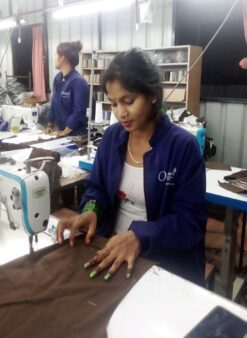
Renu Kumari Sada, 20
Renu Kumari Sada is an upbeat, optimistic young woman who grew up in a family of ten. She is part of the Sada community, a Dalit subcaste that experiences intense discrimination even from other Dalit groups.
Renu’s family relies entirely on income from agricultural labor jobs, so she was only able to attend school through grade three. After that, she needed to help support the family, which she did through household chores and farming.
When she was only 13, Renu’s family married her off to a local young man. But her husband soon moved another woman into their marital home, calling her his “new” wife. Humiliated, Renu returned to her family home, locked into a life with no future prospects, and full of social rejection—all before she ever reached adulthood.
Everyone in the village, even Renu’s family, blamed her for this misfortune. Everything would have been fine, they said, if she had only been able to make her husband happy.
Renu was living with her parents in March 2024, when she heard about a community gathering nearby. NYF was presenting information on the career training programs available through Olgapuri Vocational School. Our team hoped to include these programs in the first year of Caste Equality Project work in Saptari District.
Most young people in Saptari District’s Dalit-majority villages were too anxious to sign up for vocational training this year. These communities have endured so many broken promises, casteist obstacles, and exploitation that many parents discouraged their adult children, believing that after our training programs, any job opportunities would disappear. Their families, they thought, would end the year in worse financial condition than they began.
But where others expected a dead end, Renu saw an escape hatch.
Renu enrolled in NYF’s Industrial Tailoring training program with tremendous enthusiasm, leaving her village for the first time ever and moving to Kathmandu. Despite her limited educational background, she committed herself to mastering the math and literacy skills needed to enter this new career path. Today, Renu is thriving at work in Kathmandu’s garment industry—and her success has been noticed back home.
Inspired young adults in Saptari District are looking at vocational training opportunities with greater interest. After only a few months, Renu is putting money aside in savings and also sending some home to her family.
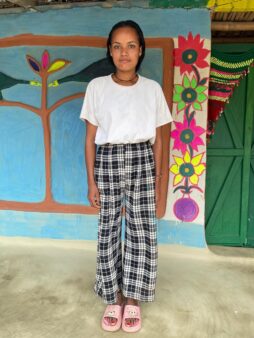
Anju Sada, 20
Anju Sada, 20, has already left a positive mark on her village through her artwork. Like Renu, Anju belongs to the Sada community. Most of the buildings in their village are simple, traditional structures made of mud, bamboo, thatch, and wood. The method of insulating with mud allows for intricate decorative patterns sculpted on the walls.
During the COVID lockdowns, Anju began experimenting with paints, enhancing the designs on nearby homes with beautiful colors. She refreshes the colors every Tihar, when Nepalis traditionally deep clean their homes for the coming year.
For this young woman from the most oppressed subcaste of all, this cheerful artwork was a kind of defiance. Despite generations of harmful messaging about her place in the world, Anju knew that she and her neighbors deserved to be surrounded by joy and beauty. And she was determined to create as much of that beauty as she could.
Anju was a local trendsetter before NYF ever arrived—she was our first local teammate when we arrived in Saptari District!
In mid-2024, Anju became the first woman from her village’s Sada community to ever complete the 12th grade. She was able to accomplish this because her parents sent her to live with her uncle in another region for much of her childhood. Growing up in another community allowed her to master both Maithili (her native language) and Nepali—but it also separated her from her cultural heritage.
When Anju first met NYF, she was accepting what she thought was a one-time translation job—a great opportunity to bring home extra income. But her eyes lit up as our team described the Caste Equality Project.
She’s been a passionate local Caste Equality Project leader ever since.
Today, Anju is an inspiration to other local girls as she encourages them to stay in school. She’s NYF’s go-to local translator, providing vital community mobilization support. And she’s also been working as a paid volunteer, helping girls who recently dropped out of school to rejoin their peers in the classroom.
